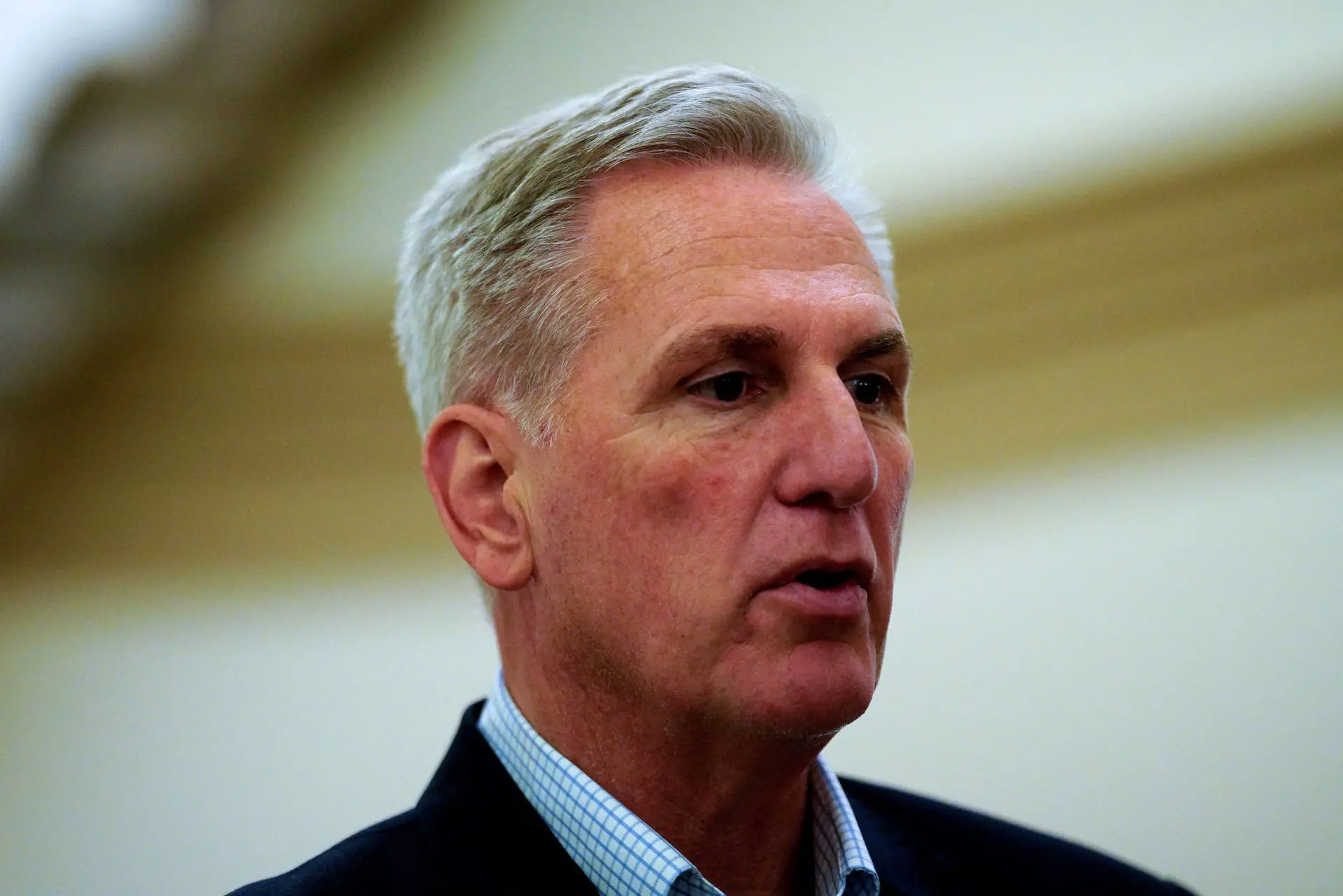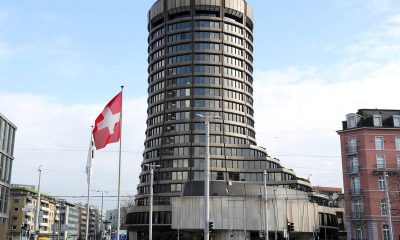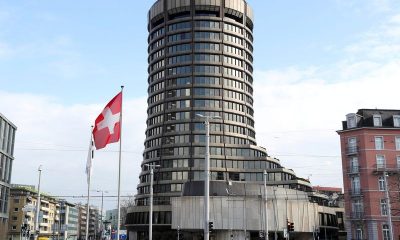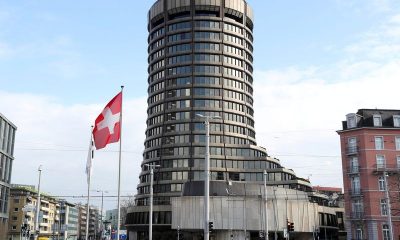Economy
McCarthy lauds U.S. debt ceiling deal, House conservatives divided

U.S. House of Representatives Speaker Kevin McCarthy on Sunday lauded the debt ceiling deal he negotiated with Democratic President Joe Biden, but a prominent House conservative warned that McCarthy has “credibility issues” that may prompt some Republicans to seek his ouster as the top Republican in Congress.
Representative Ken Buck, a member of the far-right House Freedom Caucus, said the deal had failed to deliver the deeper spending cuts that McCarthy had promised his party when he ran for speaker in January.
The debt ceiling deal keeps fiscal 2024 spending flat at this year’s levels, allowing a 1% increase for fiscal 2025. The non-partisan Congressional Budget Office estimates that the deal will cut deficits by about $1.5 trillion over a decade from its current-law baseline forecast.
House Republicans in late April passed a bill demanding $4.8 trillion deficit reduction over 10 years in exchange for a debt ceiling hike, drawing Biden into negotiations that led to the deal’s Senate approval on Thursday.
Asked whether the Freedom Caucus would seek a vote to oust McCarthy in response to the deal, Buck told CNN’s State of the Union program: “I don’t know if the motion to vacate is going to happen right away. I do know that Speaker McCarthy has credibility issues.”
To win the speakership in a fractious election process in January, McCarthy agreed to rule changes that allow just one member to force a vote to oust him, making him unusually vulnerable to hardline Republican conservatives.
Other Republicans rushed to McCarthy’s defense a day after Biden signed into law the legislation that suspends the debt ceiling until Jan. 1, 2025, averting what would have been a disastrous U.S. payments default that was expected on Monday.
“Speaker McCarthy’s position is absolutely safe,” U.S. Representative Garret Graves, a Louisiana Republican who helped negotiate the debt ceiling deal, told CBS’ “Face the Nation”.
McCarthy told Fox News Channel’s “Sunday Morning Futures” that the deal marks a rare reduction in non-defense discretionary spending, prevents the hiring of more Internal Revenue Service agents next year and increases funding for defense and veterans.
“It’s not perfect but it is a beginning of turning the ship” on spending, he said. “Now we’ve got to do the rest of the job.”
DEAL PASSES IN DIVIDED CONGRESS
Buck said that McCarthy promised Republicans that he would cut spending levels to fiscal 2022 levels, not the higher 2023 levels agreed in the deal, making the deal a loss the party.
To regain conservatives’ trust, Buck added that McCarthy’s future actions will need to “involve spending responsibly” and stop relying on the votes of Democrats as he did to pass the debt ceiling suspension.
The deal was approved by 149 House Republicans and 165 Democrats, strong majorities of both parties. Roughly half the 76 Republican no votes were from the ultra-conservative Freedom Caucus, while 46 Democrats, mostly progressives, opposed the deal, saying it enforced stringent work requirements on poor families who receive food assistance or monetary aid and others who face obstacles to employment.
They also criticized provisions that could lead to ending the student debt payment pause for younger people, and the streamlining of approvals for fossil fuel industry projects opposed by environmentalists, two key constituencies for Democrats.
On Friday, Fitch Ratings it would keep the U.S. top tier credit rating on “negative watch” until the third quarter due to concerns over repeated brinkmanship over the debt ceiling, along with rising debt and deficits.
Asked if she was concerned about a ratings downgrade, White House budget director Shalanda Young told CNN that the Biden administration does not control Fitch’s assessment process, but has warned about the potential costs of debt ceiling brinkmanship.
“It’s bad for the country. It’s bad for the global economy,” added Young, who helped negotiate the deal. (This story has been refiled to fix the order of words in the headline).
Economy
Russian central bank says it needs months to make sure CPI falling before rate cuts -RBC


© Reuters. Russian Central Bank Governor Elvira Nabiullina attends a news conference in Moscow, Russia June 14, 2019. REUTERS/Shamil Zhumatov/File Photo
MOSCOW (Reuters) – Russia’s central bank will need two to three months to make sure that inflation is steadily declining before taking any decision on interest rate cuts, the bank’s governor Elvira Nabiullina told RBC media on Sunday.
The central bank raised its key interest rate by 100 basis points to 16% earlier in December, hiking for the fifth consecutive meeting in response to stubborn inflation, and suggested that its tightening cycle was nearly over.
Nabiullina said it was not yet clear when exactly the regulator would start cutting rates, however.
“We really need to make sure that inflation is steadily decreasing, that these are not one-off factors that can affect the rate of price growth in a particular month,” she said.
Nabiullina said the bank was taking into account a wide range of indicators but primarily those that “characterize the stability of inflation”.
“This will take two or three months or more – it depends on how much the wide range of indicators that characterize sustainable inflation declines,” she said.
The bank will next convene to set its benchmark rate on Feb. 16.
The governor also said the bank should have started monetary policy tightening earlier than in July, when it embarked on the rate-hiking cycle.
Economy
China identifies second set of projects in $140 billion spending plan


© Reuters. FILE PHOTO: Workers walk past an under-construction area with completed office towers in the background, in Shenzhen’s Qianhai new district, Guangdong province, China August 25, 2023. REUTERS/David Kirton/File Photo
SHANGHAI (Reuters) – China’s top planning body said on Saturday it had identified a second batch of public investment projects, including flood control and disaster relief programmes, under a bond issuance and investment plan announced in October to boost the economy.
With the latest tranche, China has now earmarked more than 800 billion yuan of its 1 trillion yuan ($140 billion) in additional government bond issuance in the fourth quarter, as it focuses on fiscal steps to shore up the flagging economy.
The National Development and Reform Commission (NDRC) said in a statement on Saturday it had identified 9,600 projects with planned investment of more than 560 billion yuan.
China’s economy, the world’s second largest, is struggling to regain its footing post-COVID-19 as policymakers grapple with tepid consumer demand, weak exports, falling foreign investment and a deepening real estate crisis.
The 1 trillion yuan in additional bond issuance will widen China’s 2023 budget deficit ratio to around 3.8 percent from 3 percent, the state-run Xinhua news agency has said.
“Construction of the projects will improve China’s flood control system, emergency response mechanism and disaster relief capabilities, and better protect people’s lives and property, so it is very significant,” the NDRC said.
The agency said it will coordinate with other government bodies to make sure that funds are allocated speedily for investment and that high standards of quality are maintained in project construction.
($1 = 7.1315 renminbi)
Economy
Russian central bank says it needs months to make sure CPI falling before rate cuts -RBC


© Reuters. Russian Central Bank Governor Elvira Nabiullina attends a news conference in Moscow, Russia June 14, 2019. REUTERS/Shamil Zhumatov/File Photo
MOSCOW (Reuters) – Russia’s central bank will need two to three months to make sure that inflation is steadily declining before taking any decision on interest rate cuts, the bank’s governor Elvira Nabiullina told RBC media on Sunday.
The central bank raised its key interest rate by 100 basis points to 16% earlier in December, hiking for the fifth consecutive meeting in response to stubborn inflation, and suggested that its tightening cycle was nearly over.
Nabiullina said it was not yet clear when exactly the regulator would start cutting rates, however.
“We really need to make sure that inflation is steadily decreasing, that these are not one-off factors that can affect the rate of price growth in a particular month,” she said.
Nabiullina said the bank was taking into account a wide range of indicators but primarily those that “characterize the stability of inflation”.
“This will take two or three months or more – it depends on how much the wide range of indicators that characterize sustainable inflation declines,” she said.
The bank will next convene to set its benchmark rate on Feb. 16.
The governor also said the bank should have started monetary policy tightening earlier than in July, when it embarked on the rate-hiking cycle.

 Forex3 years ago
Forex3 years agoForex Today: the dollar is gaining strength amid gloomy sentiment at the start of the Fed’s week

 Forex3 years ago
Forex3 years agoUnbiased review of Pocket Option broker

 Forex3 years ago
Forex3 years agoDollar to pound sterling exchange rate today: Pound plummeted to its lowest since 1985

 Forex3 years ago
Forex3 years agoHow is the Australian dollar doing today?

 Cryptocurrency3 years ago
Cryptocurrency3 years agoWhat happened in the crypto market – current events today

 World3 years ago
World3 years agoWhy are modern video games an art form?

 Commodities3 years ago
Commodities3 years agoCopper continues to fall in price on expectations of lower demand in China

 Economy3 years ago
Economy3 years agoCrude oil tankers double in price due to EU anti-Russian sanctions



























